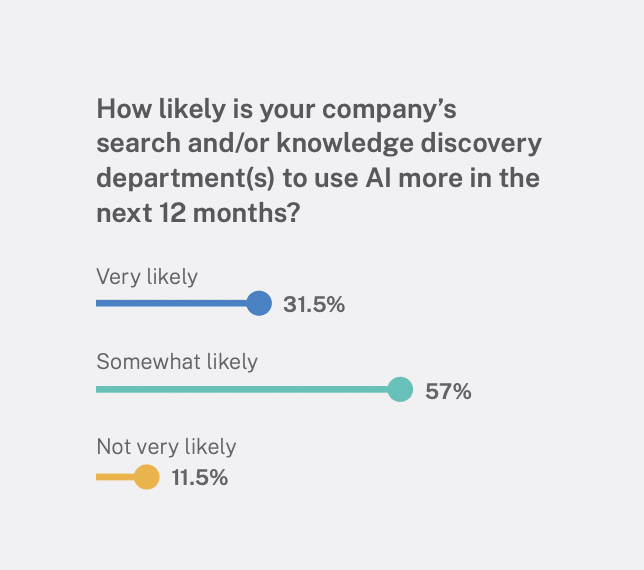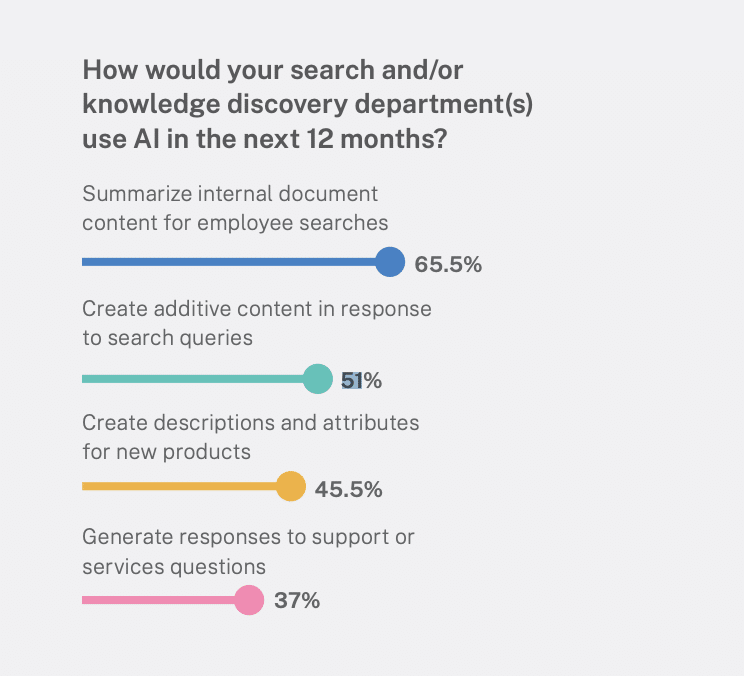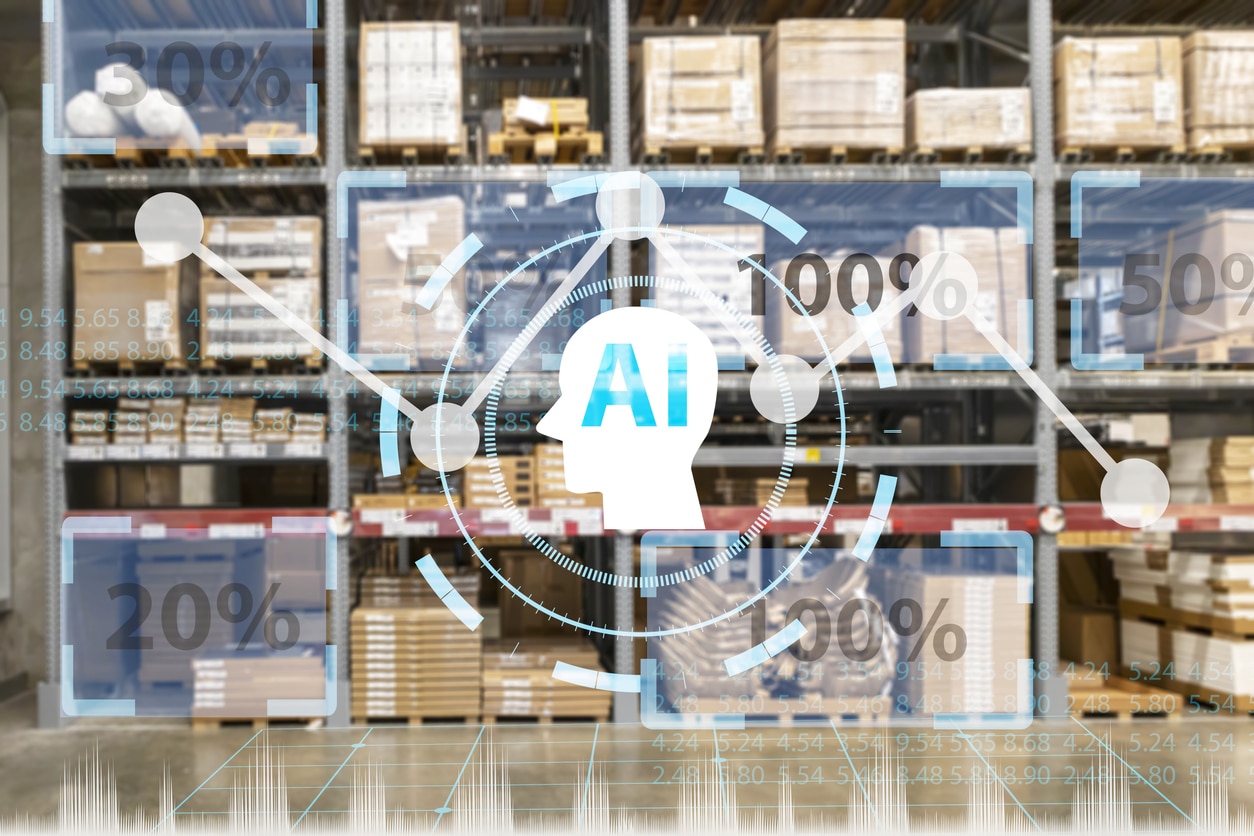The Future of AI in Search and Discovery for Manufacturers and Distributors
For manufacturers and distributors, artificial intelligence has the potential to transform search and discovery processes for their buyers. Recent research from WBR explored how B2B companies plan to integrate AI into operations over the next year.
89% of respondents believe that AI will make the search and knowledge discovery process “better” for search users. But what does “better” mean in this context?
Read on for answers from survey respondents to understand their hopes for and obstacles to integrating artificial intelligence.
The Promise of Artificial Intelligence for Knowledge Discovery
The survey results paint a promising picture for the future of AI in search and knowledge discovery. The consensus among respondents is that AI will usher in an era of increased efficiency and accuracy in knowledge discovery. AI’s unique ability to process large volumes of data rapidly and effectively is expected to expedite the discovery process while enhancing its relevance and value.

Imagine searching for information and products across a wide range of brands. With AI in the mix, it’ll be a much more functional experience. Users can expect to find services that align with their expectations. 57% of the respondents indicated that their search and knowledge discovery departments are somewhat likely to increase their use of AI in the next 12 months. Even more exciting is the fact that 31.5% are very likely to do so.
For example, STMicroelectronics turned to Lucidworks AI-powered search platform to make search goal-oriented and customer-centric. Before adopting the artificial intelligence capabilities available with Lucidworks, ST’s customer journeys were identically structured. However, this approach didn’t support the diverse objectives of ST’s customers, who require different types of specialized content at various stages of their buying journey. With Lucidworks, ST can meet buyers’ needs regardless if they’re first-time customers or long-time buyers working on a complex project.

Additionally, one of the most significant advantages of AI is its ability to offer real-time insights and optimize product offerings. Decision-makers recognize that basing their choices on knowledge provided by AI can give their businesses a competitive edge in the market.
The Role of Generative AI in Data and Document Summaries
The survey indicates that manufacturers and distributors are already taking the first steps in implementing AI into their search and discovery processes. Asignificant portion of respondents (65.5%) believe their departments will use AI to summarize internal document content for employee searches in the next 12 months. This is a crucial step in the implementation of generative AI, and it’s less likely to encounter issues, as these documents aren’t customer-facing.

Additionally, 51% of the respondents have plans to use AI in the next 12 months to create additive content in response to search queries. Almost half (45.5%) are keen on using AI to create descriptions and attributes for new products.
A Glimpse Into AI Maturity
83% of respondents who are already using AI for search and knowledge discovery report that their AI programs are somewhat mature. In contrast, only 51% of those not currently using AI for this purpose believe the same.
However, the tides are set to change over the next two years. During this time, 42% of respondents believe that their AI programs will become very mature, marking a significant increase of 41%. Only 10.5% foresee their programs remaining immature at that point.
Those companies already using AI for search and knowledge discovery are ahead of the curve. A majority (67%) of these respondents believe that their programs will be very mature in two years, compared to just 21% of respondents who aren’t currently using AI for these purposes.

Limitations and Realities
While the enthusiasm for AI’s potential is palpable, there is a consensus among respondents about the potential limitations of AI. Some have pointed out that while AI can provide valuable knowledge, it may not necessarily fill decision-making gaps. Additionally, concerns have been raised about the applicability of AI models when offline data is not considered.
Despite these potential roadblocks, the overall sentiment remains optimistic, with businesses eager to harness AI’s capabilities for a more streamlined, responsive, and efficient knowledge discovery process.
The Future: Faster, Smoother, and More Efficient
AI-driven search and knowledge discovery are on the brink of transforming the manufacturing and distribution industry. While the path may have its share of challenges, the overall sentiment is optimistic, with businesses eager to harness AI’s capabilities for a more streamlined, responsive, and efficient knowledge discovery process.
Manufacturers and distributors must prepare to embrace AI into their workflows as soon as possible to avoid falling behind their competitors. If you’re eager to integrate artificial intelligence into operations, supply chain management, and the buyer journey, drop us a line.